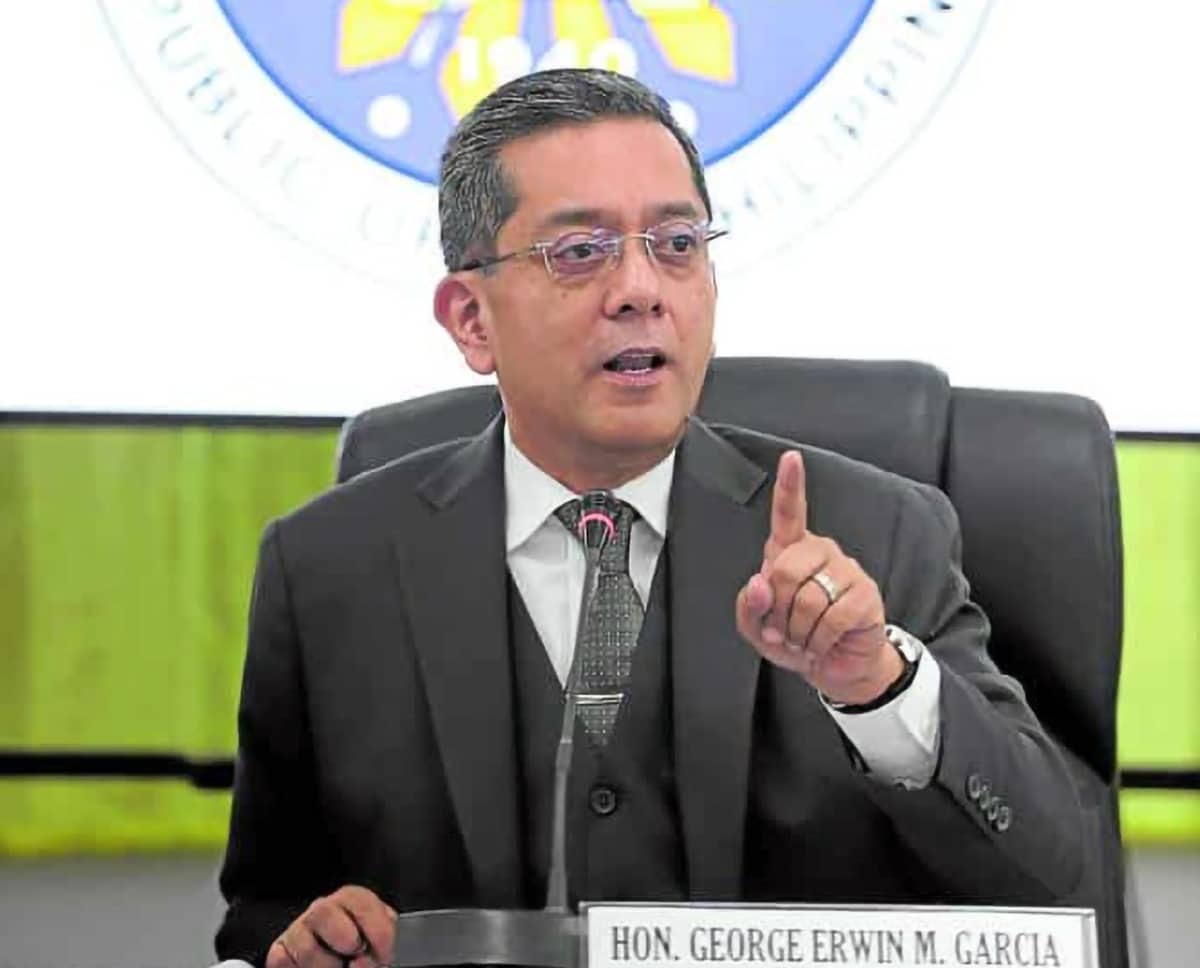
Comelec Chair George Erwin Garcia. —Inquirer photo/Niño Jesus Orbeta
MANILA, Philippines — To protect the sanctity of elections and the integrity of the Commission on Elections (Comelec), the poll body launched a new task force to combat disinformation, misinformation and malinformation, including those committed using artificial intelligence (AI) and deepfakes.
The Task Force Katotohanan, Katapatan at Katarungan (KKK) sa Halalan (Truth, Honesty and Justice in the Elections) was launched at the conclusion of the stakeholders forum and consultation dialogue entitled “AI and Philippine Elections Decoded,” that the Comelec hosted on Thursday at the University of the Philippines College of Law in Quezon City.
READ: Namfrel to Comelec: Don’t ban AI in next elections
The Task Force KKK sa Halalan will be tasked to monitor and regulate posted and published contents on “quad-media” (TV, radio, print and online), “prebunking” (preemptively correcting deceptive misinformation) and debunking malicious and erroneous information against the Comelec, its officials and the electoral processes.
The task force will also undertake voter education and information efforts and report and recommend for prosecution the “peddlers of misinformation, disinformation and malinformation and malicious actors” of AI-generated materials and deepfakes in elections.
Law needed
The Comelec said it was “hopeful that the activation of the task force will help set the tone for the crafting of further legislation on the matter.
Comelec Chair George Erwin Garcia and Commissioners Rey Bulay, Ernesto Ferdinand Maceda Jr. and Nelson Celis, who is in charge of the task force, led the official launching.
Garcia appealed to the participants representing the academic, legal and information technology (IT) communities, political parties and party list organizations, citizens arms and other interest groups to help and support the Comelec in coming up with sound policy guidelines in relation to disinformation and misinformation on social media and the internet, absent a law defining AI and deepfakes and punishing its misuse and abuse in our jurisdiction.
“We want to know what part of AI that is being used for elections should be regulated and prohibited, if any, and if regulated and prohibited, will we be violating any law or right?” Garcia told reporters in an interview on the sidelines of the launching.
He said the poll body is targeting to issue the guidelines by the second week of August.
At the forum and dialogue, Comelec solicited insights and input from stakeholders to help the poll body formulate “a sound, relevant and effective policy in navigating and addressing the challenges in the rapidly evolving technological landscape as it relates to elections.”
Fake news still an issue
“Cognizant of the uncertainties and difficulties in dealing with false information and malicious actors on the digital front, an issue which is not solely borne by the poll body but by all stakeholders, including the voting public as well as political parties and prospective candidates, the Comelec at the outset deemed it best to engage and involve everyone through a consultative and collaborative process,” the poll body said in a statement.
It added that despite the limitations imposed by the current legal framework in the regulation of election propaganda and prohibition on propagation of false information in elections, it will not hesitate to employ its broad and plenary rule-making powers to issue appropriate rules and regulations lest it be remiss of its constitutional duty to ensure the holding of free, orderly, honest, peaceful and credible elections.

